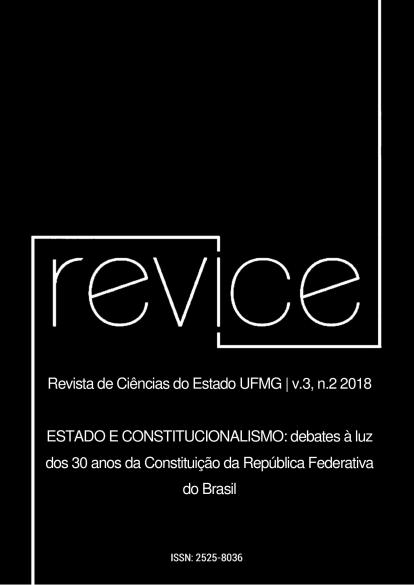Letter I, 1 by Marcus Tulius Cicero to Brother Quintus
DOI:
https://doi.org/10.35699/2525-8036.2018.5116Abstract
TRANSLATOR'S INTRODUCTION
One of the treasures of antiquity preserved from the inexorable corrosion of the centuries are the letters of Marcus Tulius Cicero. In these writings, published after the death of the Roman philosopher and orator, we have the unique opportunity to immerse ourselves in the daily life of the late Republic, whether in the main political debates, or in customs and cultural practices.
As Cicero was an active figure in this context, a historian may find it challenging to identify the boundaries separating the values and ideas of the character, consul saviour of the res publica in the episode of the Catiline conspiracy, from the events of Rome's history.
However, a philosopher, without abandoning historiography, may well conclude that, in view of the primacy of Ciceronian sources for the knowledge of the republican period, for us, two millennia later, when we speak of the Roman Republic, it is the Republic of Cicero, in the eyes of Cicero, for Cicero.
Thus, it is essential that we investigate, patiently, the letters of the old magistrate, together with his most explored philosophical and rhetorical works. And for history and political philosophy, Ad Quintum fratrem I, 1 is perhaps one of the most interesting texts.
Written towards the end of 60 BC, the year 654 of Rome's foundation, it was addressed to Quintus, Cicero's brother and also a political actor. Edil in 66 and praetor in 62, he was appointed in 61 to the government of the province of Asia, today corresponding to portions of Greece and Turkey 16. The successive prorogatio for 60 and 59 left Quintus dissatisfied, but Cicero, who had been consul in 63 17, saw in that third year an excellent opportunity for that one to highlight his qualities as a good ruler and thus receive the praise necessary for the vir Roman to leave his name and that of his family in history for future generations, to be an exemplum. Nevertheless, this is a writing that generally stands in the shadow of other great passages concerning the best political man, such as the treatise De re publica and the oration Pro Sestio, but equally important for understanding the conception of the civil dedicated to the good of the res publica.
In the epistle, Cicero also notes another very important factor that could contribute to
Fifth to stand out in glory: although not the most prosperous of the provinces, Asia was home to cities of immeasurable tradition, in which fading traces of the ancient Greeks so admired by the orator remain. Here is the flourishing Ciceronian humanitas that, from the recognition of the intellectual debt to the Hellenes, gives rise to a benevolent treatment, a common cultural background to transform human action itself, ethically uniting Greece and Rome.
Paradoxically, the ascending empire already left traces of exploitation, so a good provincial ruler, marked by humanity, as outlined in this letter 18, is urgently needed.
Downloads
References
CÍCERO. Cartas I: Cartas a Ático. Trad. Miguel Rodríguez-Pantoja Márquez. Madrid: Gredos, 1996.
_______.Epistole al fratello Quinto e altri epistolari minori. A cura di Carlo di Spigno. Torino: Unione Tipografico-Editrice Torinese, 2002.
SANTOS, Igor Moraes. A res publicaentre a ideia e a história: filosofia, eloquência e tradição no pensamento político-jurídico de Marco Túlio Cícero. Dissertação (Mestrado em Direito). 2018. 483f. Faculdade de Direito, Universidade Federal de Minas Gerais, Belo Horizonte, 2018.
Downloads
Published
Issue
Section
License
Copyright (c) 2018 Igor Moraes Santos

This work is licensed under a Creative Commons Attribution-NonCommercial-ShareAlike 4.0 International License.
1. Os conteúdos dos trabalhos são de exclusiva responsabilidade de seu autor.
2. É permitida a reprodução total ou parcial dos trabalhos publicados na Revista, desde que citada a fonte.
3. Ao submeterem seus trabalhos à Revista os autores certificam que os mesmos são de autoria própria e inéditos (não publicados em qualquer meio digital ou impresso).
4. Os direitos autorais dos artigos publicados na Revista são do autor, com direitos de primeira publicação reservados para este periódico.
5. Para fins de divulgação, a Revista poderá replicar os trabalhos publicados nesta revista em outros meios de comunicação como, por exemplo, redes sociais (Facebook, Academia.Edu, etc).
6. A Revista é de acesso público, portanto, os autores que submetem trabalhos concordam que os mesmos são de uso gratuito.
7. Constatando qualquer ilegalidade, fraude, ou outra atitude que coloque em dúvida a lisura da publicação, em especial a prática de plágio, o trabalho estará automaticamente rejeitado.
8. Caso o trabalho já tenha sido publicado, será imediatamente retirado da base da revista, sendo proibida sua posterior citação vinculada a ela e, no número seguinte em que ocorreu a publicação, será comunicado o cancelamento da referida publicação. Em caso de deflagração do procedimento para a retratação do trabalho, os autores serão previamente informados, sendo-lhe garantido o direito à ampla defesa.
9. Os dados pessoais fornecidos pelos autores serão utilizados exclusivamente para os serviços prestados por essa publicação, não sendo disponibilizados para outras finalidades ou a terceiros.



